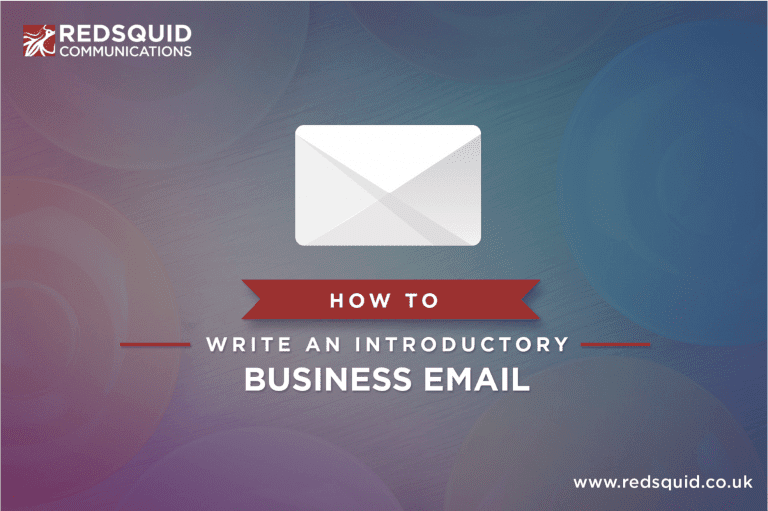How to Write an Introductory Business Email
A good introductory email could lead to a lasting business relationship and even a sale, whereas sending a bad introductory email will only lead to silence at best, and indignation at worse. To make a good first impression, you really need to nail this email; here’s how to create a winning introductory business email.

The Address
If you’ve already met or spoken to someone from the company before, then you’re in luck. Being able to email someone you know can help dramatically boost your chances of success. Direct your email to whomever you, or someone else from your company has met, regardless of their relevance to your end goal. If you or anyone else from your company haven’t yet made contact already, then find the address for whomever your request is most relevant to. Avoid sending the email to a random employee or to a generic info@account.
The Subject-Line
Next, you need to come up with an enticing, yet accurate, subject-line. This is to encourage the receiver to open your email, take it seriously and find it later. The elements of a good subject-line are founded in generating curiosity and portraying honesty; writing a ‘clickbait’ style subject line isn’t going to get you very far. Instead try to include recognisable names; for example, if you’ve met anyone from the company before, then mention this encounter. Pairing this with a proposal; such as an invitation to meet or to introduce someone, will up your chances of your email being opened.
The Greeting
How you greet your recipient will once again depend upon your current relationship with them. If you have personally met or spoken to them before, then mentioning your last interaction is a good place to start. “Dear (recipient’s name), do you remember me from the communications convention we went to last week?” “Remember when we spoke about line rentals/cake decorators/microphones?” Establishing some common ground with them is also a good idea; think about what you discussed and involve it somehow. If you haven’t met the recipient, then do some investigating about the company; what do they deal in? How does it relate to what your business does? Start off with this, and it will show that you care enough to have done your research.
Who are you? And Why Should They Care?
Here’s where you start to get down to the meat of the matter. Firstly, you want to build the email to be about them. Obviously, you’re doing this to help further your company, but a good introductory email should be about them, more than it is about you. What do they do that your company can relate to? Perhaps you’ve already had a discussion about how they’re struggling to find good talent, and you happen to work for a recruitment agency. Start off with what they do, and work from there. Next thing to do is to acknowledge where you come into this. Who is your company? Specifically, what assets of your company will they be interested in? i.e. your company specializes in searching for high-quality talent.
What Can You Do for Them and Why Are You the Company to do It?
It’s important to remember that this is not a ‘cold email’, those are a completely different type of communication that serve a different purpose. An introductory email is not primarily meant to score a sale, it may lead to one, but making that your goal is not a great approach. You haven’t put all this work in, just to have your recipient get annoyed at you trying to extract money from them. What will this company get out of building a relationship with yours: greater influence? Access to stellar talent? Why are you the company they should do this with?
The ‘Call to Action’
This is where you put the ball firmly in their court. You want to make contacting you the recipient’s idea. Attempting to force action onto your recipient is not a good idea. You want to encourage it. For example, you could say: “If you’d like to know more, feel free to reply”, or “If you have the time, then I’d love to speak to you about (such and such)”. Appearing accommodating and empathetic will endear them to you. Finish this off with a suitable farewell, and you’re almost guaranteed to have made a good impression.
If you hear nothing a week later, consider following this up with another email or phone-call. This will ensure that they received your introduction and that they continue to have your interest.
Read more about how to write professional emails.
Want to share it with your friends?
